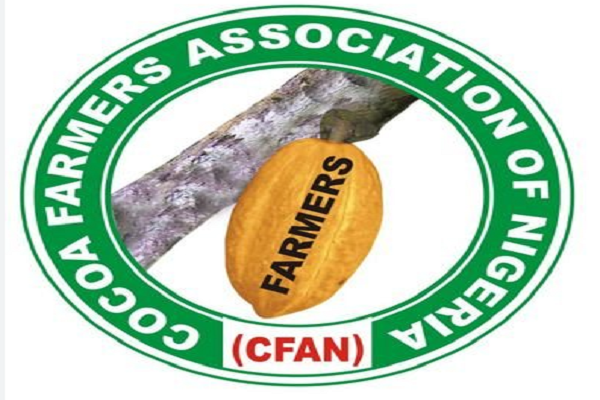The National President of the Cocoa Farmers Association of Nigeria (CFAN), Comrade Adeola Adegoke, remarked that cocoa farmers are currently experiencing a favorable period due to the robust prices of cocoa beans in the global markets. This satisfaction comes against the backdrop of Nigeria’s deregulated cocoa economy since the abolition of the cocoa board in 1986.
In a statement provided to Daily Independent, Adegoke expressed contentment with the current pricing dynamics of cocoa in the international market, noting that despite the non-implementation of the Living Income Differential (LID), the prevailing price levels are deemed satisfactory.
He further emphasized that Nigerian cocoa farmers are not adversely impacted nor envious of their counterparts in Ghana and Ivory Coast, attributing this disparity to differences in their economic structures. Despite these differences, Adegoke stressed that farmers in Nigeria’s cocoa industry are content with the current pricing framework, particularly in light of the recent upsurge in cocoa prices globally.
“We do not harbor envy towards our counterparts’ cocoa farmers in Ghana and Ivory Coast due to the structure of their cocoa economies, which limits their ability to benefit from the current surge in cocoa prices resulting from future cocoa contracts executed by their respective cocoa boards.”
“In fact, we have received reliable information indicating that the prices paid to cocoa farmers in these two major cocoa-producing countries reflect the rates as of April 2023, around $2,700 per ton. Let’s also consider the recent 50 percent increase in cocoa prices in Ivory Coast and Ghana, occurring last week and this week respectively.”
He further urged Nigerians to maintain and uphold control over cocoa production and management within the country.
He emphasized that in order to enhance production and productivity among smallholder cocoa farmers and improve their livelihoods, there is a necessity to increase the availability of subsidized farm inputs, credit facilities, and capacity building initiatives, among other measures.
“We must initiate regulations and advocate for the Nigerian cocoa economy through the National Cocoa Management Committee (NCMC), ensuring increased investment in the sector by achieving a stable regulatory framework encompassing quality control, smuggling prevention, pesticide management, extension services, research and development, traceability, synergy between FMAFS and State Cocoa Producing Governments, eradication of child labor, deforestation control, and implementation of a National Cocoa Plan.
“The National Cocoa Management Committee (NCMC) should refrain from engaging in the buying and selling of cocoa beans, except for providing stabilization support funding in the future when necessary, particularly during periods of drastic declines in cocoa prices beyond the economic capacity of cocoa farmers, as practiced in other developed countries with various commodities,” he advised.
However, he disclosed that the EUDR policy advocates for increased involvement of cocoa stakeholders in collaborative efforts to establish a national traceability system, ensuring transparency in the cocoa economy business with a focus on sustainability.
He emphasized that Nigeria has greater potential to surpass Ivory Coast and Ghana due to challenges such as pests and diseases, climate change, smuggling, mining activities, land degradation, unfavorable cocoa economy governance, and inadequate remuneration for smallholder cocoa farmers, among other factors, resulting in a decline in cocoa production in these countries.





